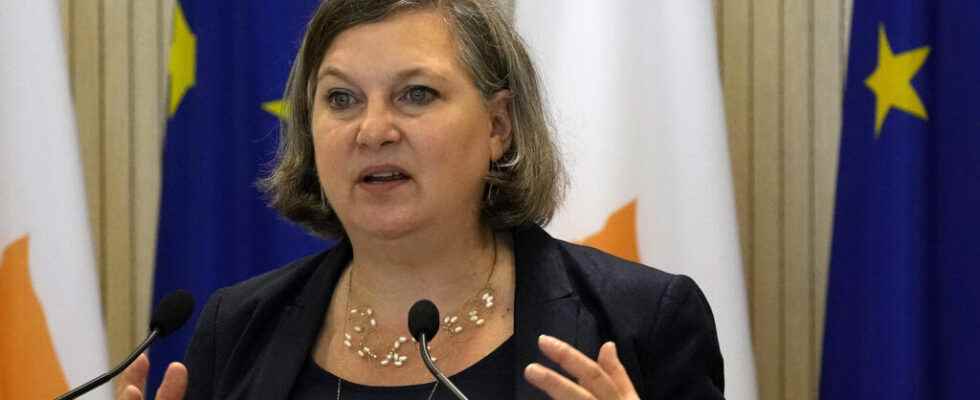The US Under Secretary of State for Political Affairs has just returned from a tour of West Africa. Between October 16 and 20, Victoria Nuland traveled to Mauritania, Mali, Niger and Burkina Faso.
On Wednesday, October 26, Ms. Nuland held a press conference to discuss her trip, which focused on the growing terrorist threat, the influence of the Russian paramilitary group Wagner, and political transitions in West Africa.
The US Under Secretary of State for Political Affairs, for example, referred to the situation in Burkina Faso, where a new transitional power is now in place.
Interim Burkinabè President Ibrahim Traoré was unambiguous. The Burkinabè will themselves defend the security of their nation. They have no intention of calling on the Wagner group. We were very clear with him about the risks incurred if one day they changed their minds. And we talked about how to continue supporting the military’s efforts to repel terrorists, without outside support from Russia and Wagner.
►Read also: Burkina Faso: to face the terrorist threat, the army is recruiting 50,000 volunteers
Regarding Mali, the situation is different, notes Victoria Nuland.
In Mali, we have been very clear about our concerns. The Malian junta invited Wagner to the country. And the terrorist situation has only worsened. The Russians provide some equipment, but this equipment works poorly. We saw this recently with the supply of an airplane which crashed and caused civilian casualties. There are many reports of abuses against the populations, they encourage the Malian forces to deny Minusma access to part of the center of the country. And we worry that these forces are not interested in the security of Malians, but rather in their personal enrichment and the money of Mali. Neighboring countries are very worried. We are working with them, particularly on their borders, so that Wagner and terrorism remain on the Malian side.
Statement by Victoria Nuland, U.S. Under Secretary of State
But the emissary said she was confident in holding the timetable for ending the crisis, even if major challenges will have to be met in Mali.
We met with electoral officials, civil society, the Prime Minister and his government. So far, with what we have seen, the Malian government is keeping its commitment and making sure that the timetable for elections in 2024 is kept. Nevertheless, there will be challenges, particularly in relation to the security situation; situation aggravated by the growing role of the Wagner group and the gradual eviction of UN blue helmets. And this, while the number of terrorist attacks has increased by 30% in the last six months. We also expressed our concern about the inclusiveness of the elections. This is still linked to the security situation, but also to the large number of displaced people in the country. They will have to be registered, etc. So there are a lot of challenges. But at least the civilians in charge of the elections seem to be on schedule. We also shared our concern about the increasingly reduced space of the Minusma, as well as the constraints that the government and Wagner impose and which limit the action of blue helmets. We finally recalled the aggravation of the terrorist phenomenon, and firmly pointed out the fact that Wagner only worked on his own account and not for the Malians.
Victoria Nuland on the situation in Mali
►To re-read: Mali: the president of a Fulani association denounces the abuses against his community
